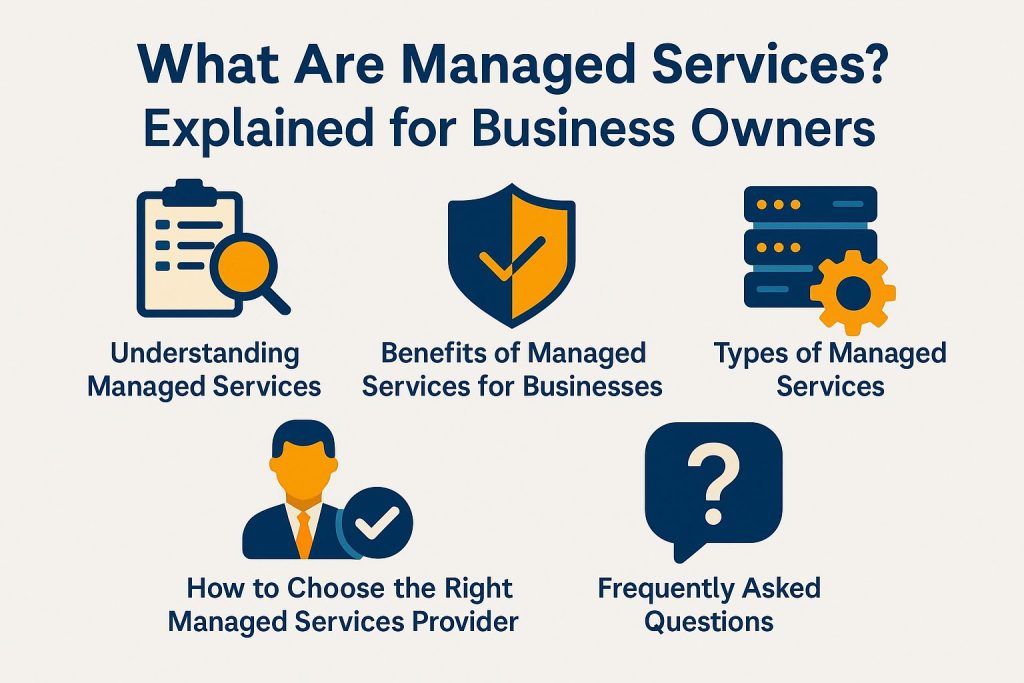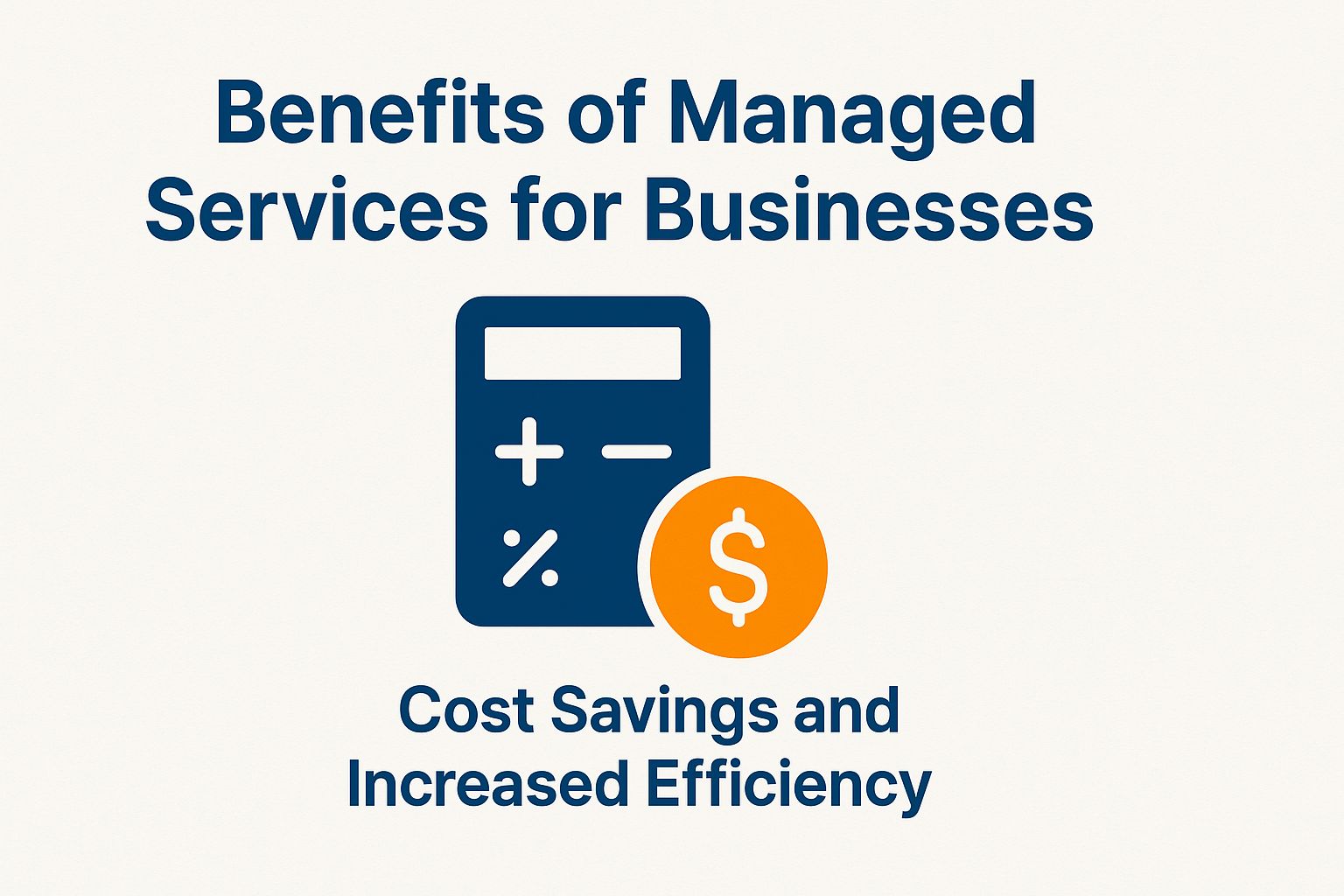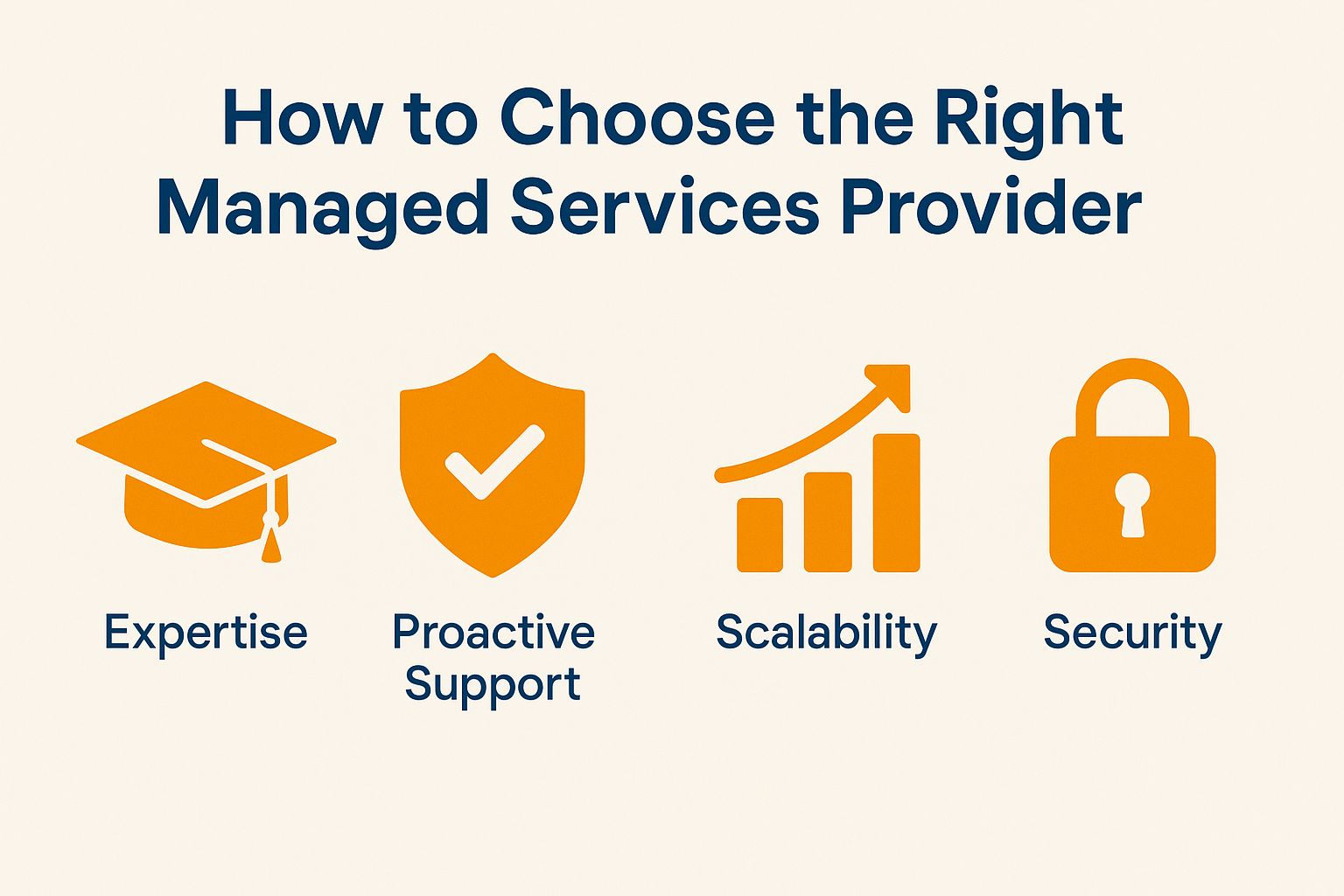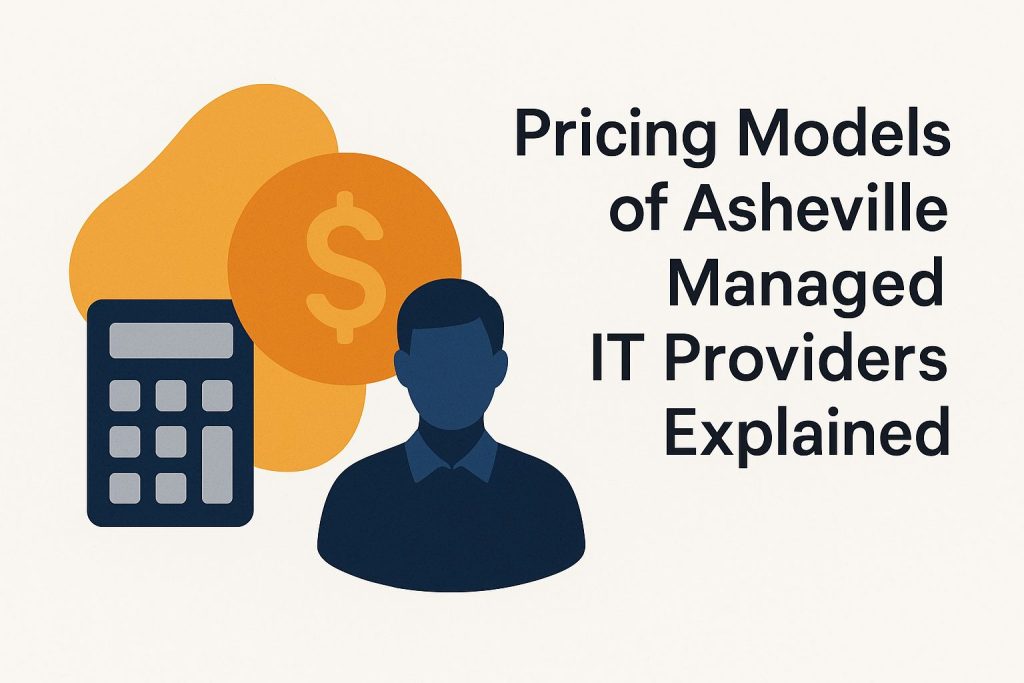What Are Managed Services? Explained for Business Owners

Today, understanding outsourced service models like managed solutions is crucial for staying competitive. This article highlights their key benefits, including cost savings and greater operational efficiency. It also explores the various types of services available—ranging from IT and HR to marketing—and outlines important factors to consider when selecting the right provider. Altogether, this insight shows how outsourcing support functions can significantly transform business operations.
Understanding Managed Services
Managed services are important in IT. They allow business owners to outsource technology solutions and improve IT management.
By working with managed service providers, businesses can save costs and streamline operations. This allows them to focus on core tasks and manage budgets better.
Proactive IT management improves efficiency and promotes digital transformation. It helps organizations adapt to new technology, optimize performance, and support growth. This approach has significant implications for content strategy- the future of IT infrastructure in Asheville’s business landscape demonstrates how proactive strategies can shape business environments.

Definition and Explanation for Business Owners
A managed service provider (MSP) is a third-party expert. They help business owners delegate IT strategy and management. MSPs ensure consistent support and reliable network management through service level agreements (SLAs).
By using these experts, organizations can focus on their core operations without getting bogged down by technical issues. The role of MSPs goes beyond basic support; they offer services such as remote monitoring, infrastructure management, and customized IT strategies tailored to align with a company’s specific objectives.
This proactive approach assists in identifying potential issues before they escalate, thereby minimizing downtime and enhancing productivity. The managed service model allows businesses to access the latest technology trends without incurring significant upfront investments, positioning it as a cost-effective solution for improving overall operational efficiency.
Benefits of Managed Services for Businesses
The benefits of managed services go beyond cost savings. These include better operational efficiency, enhanced risk management, improved compliance, and support for business continuity through disaster recovery strategies.
These elements collectively drive business growth, as mentioned in our analysis of the benefits of partnering with a managed IT services provider, ensuring continuity through effective disaster recovery strategies and efficient communication and collaboration tools.

Cost Savings and Increased Efficiency
Using managed services can save costs. This helps businesses allocate their IT budgets better and enhances efficiency through effective vendor management.
By entrusting specific functions to managed service providers, organizations can streamline their operations, allowing them to concentrate resources on core business activities. This strategic allocation not only reduces overhead costs but also ensures that technology investments are optimized for maximum return on investment.
Effective vendor management plays a critical role in strengthening operational capabilities, fostering collaboration, and ensuring that service levels align with business objectives.
Ultimately, these efficiencies create a foundation for innovation and growth, enabling companies to remain competitive in a rapidly evolving market.
Types of Managed Services
Managed services include various IT solutions for different business needs. For those seeking a comprehensive understanding of available IT solutions in specific locales, exploring Black Mountain’s business technology solutions could provide valuable insights.

IT, HR, and Marketing Services
Service models like these span across IT management, HR functions, and marketing automation, enabling organizations to leverage specialized expertise without expanding internal teams.
Such solutions enhance operational workflows by streamlining tasks and reducing the pressure on in-house resources. Common examples include cloud infrastructure management, cybersecurity safeguards, and comprehensive network monitoring—each playing a vital role in maintaining a reliable, secure digital environment.
Additionally, HR outsourcing addresses functions like recruitment, payroll processing, and employee relations, allowing organizations to concentrate on strategic growth rather than administrative responsibilities.
In the area of marketing automation, customized software solutions can foster engagement and analyze customer behaviors, resulting in more effective marketing campaigns.
In the end, integrating these services maximizes productivity. It also helps businesses respond quickly to changing market demands.
How to Choose the Right Managed Services Provider
Choosing the right managed service provider (MSP) is crucial for business success. It requires careful evaluation of key factors.
Consider the provider’s skills in vendor management, their ability to deliver services, compliance with regulations, and their technical expertise in IT services. To understand how managed IT services can support your business operations, learn more about the 24/7 tech support available with managed IT services in Asheville.

Key Factors to Consider
When evaluating potential managed service providers, business owners should carefully consider several critical factors. These include service level agreements (SLAs), performance monitoring practices, customer support availability, risk management strategies, and scalability options. Together, these elements help ensure a comprehensive and effective partnership.
A strong SLA forms the foundation of this partnership. It outlines the expectations and responsibilities of both parties clearly. Businesses should also verify that the managed service provider (MSP) has strict performance monitoring in place. This not only tracks system efficiency but also highlights areas that need improvement.
In addition, responsive customer support plays a vital role in partnership success. Timely assistance can prevent issues from escalating. Reviewing the MSP’s risk management strategy also reveals how well they protect sensitive data and maintain business continuity. This has become more important than ever.
Frequently Asked Questions
What Are Managed Services and Why Should Business Owners Consider Them?
Business owners should consider managed services to lessen the burden of IT tasks. This frees up time for other important functions and improves overall efficiency.
What Are the Benefits of Using Managed Services for Business Owners?
There are many benefits to using managed services for business owners. These include 24/7 support, access to the latest technology and expertise, cost savings, and improved security. By outsourcing IT tasks to a managed services provider, business owners can focus on their core business functions and leave the technical details to the experts.
Are Managed Services Only for Large Businesses?
No, managed services are not just for large businesses. In fact, they can be especially beneficial for small and medium-sized businesses that may not have the resources to hire a full-time IT staff. Managed service providers offer customizable plans and services to fit the specific needs and budget of any business, regardless of size.
How Can Managed Services Help Improve Business Operations?
Managed services improve business operations. They reduce downtime, enhance system performance, and strengthen security.
Is Data Security a Concern With Managed Services?
Managed service providers prioritize data security. They have the expertise to implement advanced security measures. This protects your data and systems from cyber threats. They provide continuous monitoring to ensure the security of your business operations.
Can Business Owners Customize Their Plan?
Yes, business owners can customize their managed services plan to meet their needs and budget. Providers offer services like network management, cloud solutions, data backup, and cybersecurity. They can tailor a plan for your business. This creates a cost-effective and efficient solution for your business.




